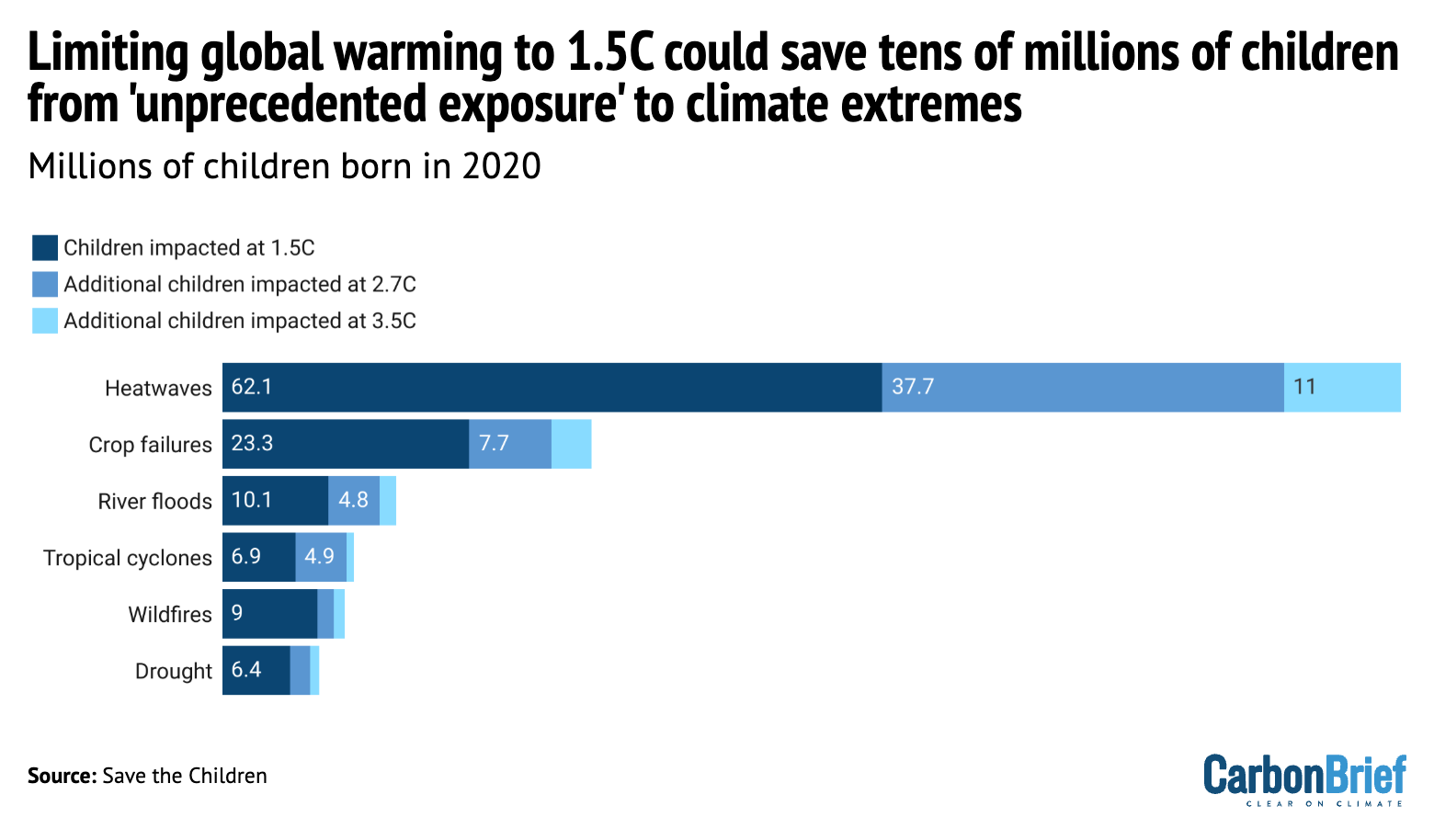
DeBriefed 9 May 2025: Australia elects climate action; Spain ‘committed’ to renewables; Taiwan’s nuclear phaseout
Wanyuan Song
05.09.25Wanyuan Song
09.05.2025 | 1:01pmWelcome to Carbon Brief’s DeBriefed.
An essential guide to the week’s key developments relating to climate change.
This week
Australia votes for climate action
CLIMATE PROMISE: Australia’s Labor party has secured a second term in power following a landslide election victory, reported CNN. Prime minister Anthony Albanese “reiterated his commitment to climate action” and his government’s target to reach net-zero by 2050, added the outlet. Bloomberg said Albanese’s “next campaign” is to stave off Turkey to secure hosting the COP31 climate summit, along with Pacific nations, in 2026.
PUBLIC SUPPORT: The Conversation said that Australia now has “five huge climate opportunities”, including setting an ambitious new international climate pledge for 2035. Columnist David Fickling wrote in Bloomberg that the “historic” victory of the Labor party proved the right-wing opposition party’s plan to replace “renewables-focused climate targets with a switch to nuclear energy” was not widely supported. Guardian Australia’s climate and environment editor Adam Morton said that the country “backed a rapid shift to renewable energy”.
EU eyes renewable future
RUSSIAN GAS: The European Commission published a “roadmap” for ending reliance on Russian energy, which includes a ban on all Russian gas imports by the end of 2027, BBC News reported, adding that the bloc hopes to move away by “accelerating the deployment of renewable energy”. Meanwhile, Chinese president Xi Jinping was expected to talk about the China-Russia Siberia 2 gas pipeline, which could send 50bn cubic metres of gas to China, during his visit to Moscow this week, the Guardian reported.
SPAIN’S TRANSITION: Following last week’s blackout in Spain and Portugal, the Spanish prime minister Pedro Sánchez said that he will not deviate a “single millimetre” from his commitment to renewable energy, calling it “our country’s energy future” and “our only and best option”, reported the Financial Times. Sanchez rejected nuclear-power advocates, saying the blackout was used as an excuse for a “gigantic manipulation exercise”, reported the Daily Telegraph.
Trump regime continues
DISASTERS DELETED: The New York Times reported that the US National Oceanic and Atmospheric Administration (NOAA) has announced that it will stop tracking the cost of the country’s most expensive disasters – defined as those that cause at least $1bn in damage. The newspaper described this as the “latest effort from the Trump administration to restrict or eliminate climate research”.
MORE TRUMP: The Trump administration also proposed to cut more than $21bn in climate-related funding, including $15bn for carbon capture and renewable energy and $6bn for electric-vehicle chargers, reported Reuters. Elsewhere, two major science unions pledged to produce “over 29 peer-reviewed journals that will cover all aspects of climate change” after the administration dismissed a “key Congress-mandated report on climate”, reported the Guardian.
Around the world
- UN REFORM: The UN is “considering sweeping reforms”, which could “integrate” the “climate change arm” into the “environment programme”, following “even deeper funding cuts” from the Trump administration, said the Financial Times. The newspaper added that the reform memo also “mulled whether the COP climate change summit…‘should be discontinued’ in its current form”.
- WINDFARM BLOW: The construction of Hornsea 4, a windfarm that aimed to add 2.4GW to the UK’s clean energy capacity, was cancelled by its Danish owner Ørsted, reported BBC News. The Guardian said the decision was a “major blow to the government’s plan to quadruple the UK’s offshore wind capacity by the end of the decade”.
- CHINA EXTREME WEATHER: Upcoming “hot and dry” weather will pose risks to the wheat harvest in China’s Henan province, which accounted for nearly a third of the nation’s total wheat output in 2024, Bloomberg reported.
- METHANE EMISSIONS: Record fossil-fuel production pushed methane emissions close to an all-time high in 2024, according to a report by the International Energy Agency, covered by Agence France-Presse.
65%
The proportion of global warming from 1990-2020 that the “wealthiest 10%” of people are “responsible” for, according to research covered by Carbon Brief.
Latest climate research
- Research in PLOS Climate found that just 4% of hyperlinks point to “scientific sources” in 1.3m posts and 20.3m comments related to climate change on Reddit from 2009-22.
- Climate change intensified deadly rainfall and made storms more likely to occur in Arkansas, Kentucky, Tennessee and other states across the US south and midwest in early April, a new World Weather Attribution analysis found.
- Science Advances published a study finding that an unprecedented surge in concurrent heatwave-drought events from Eastern Europe to East Asia has been “amplified” by climate change.
For more, see Carbon Brief’s in-depth daily summaries of the top climate news stories on Tuesday, Wednesday, Thursday and Friday.)
Captured

Children born in 2020 – of which there are about 124 million – will face “unprecedented exposure” to extreme weather events, even if global warming is limited to 1.5C by the end of the century, according to a new study published in Nature and covered by Carbon Brief. The chart above illustrates how many millions of children born in 2020 are expected to face a range of extremes, from heatwaves to tropical cyclones, throughout their lifetime at 1.5C (dark blue), compared to even higher levels of warming. Limiting global warming to 1.5C could save 77.2 million children from exposure to extremes, the research concluded.
Spotlight
Taiwan’s nuclear phaseout
This week, Carbon Brief examines what Taiwan’s decision to phase out nuclear power means for its climate policies.
Taiwan will shut down its last nuclear power reactor on 17 May.
Nuclear has played an important role in Taiwan’s energy supply, which is 97% imported.
Nuclear provided 12% of electricity in 2016, according to the Taiwanese Energy Administration. In 2025, it accounted for about 3% of the electricity supply, while gas contributed 46%, coal 34% and renewable energy 15%.
In 2016, the Democratic Progressive Party (DPP), an anti-nuclear party, won the presidential election. Then-president Tsai Ing-wen launched her “nuclear-free homeland policy”, with a pledge to avoid nuclear incidents similar to the Fukushima disaster in Japan.
The DPP has said that going “nuclear-free” is part of its “net-zero” transition. The party aims to have 50% of its electricity generated from gas, 30% from coal and 20% from renewable sources by 2025.
Public concerns
Nevertheless, its nuclear-free policy faces pressures from the opposition parties, as well as the public.
The Taipei Times, a Taiwanese newspaper, reported that 48% of the public was “dissatisfied” with the plan in 2017.
Protests against the plan continued until May 2025, with many people citing worries about having a stable electricity supply.
Seeking to reassure the public, the government’s Energy Administration said that the need to source more electricity to replace nuclear has “already been included in the long-term electricity development plan” and that “there will be no power shortage”.
More fossil fuels?
The environmental impact of the government’s “long-term power electricity plan” has also been under scrutiny.
The Taipei Times said the plan is “substituting nuclear sources of energy with coal-fired sources”.
A study in Energy Strategy Review found that the plan “lack[s]” a “coal phase-out schedule”, which may “render Taiwan’s energy transition unjust”.
In 2016, about 45.9% of electricity supply was from coal, while gas and renewable energy accounted for 31.5% and 4.8% respectively.
Rather than gradually reducing coal-fired power as the DPP planned, the share of coal increased to more than 47% in 2018, which then fell back to 45% in 2020, due to the temporary increase of nuclear power, said the study.
The growth of gas and renewable sources did not go as fast as the DPP predicted, according to the study, making the nuclear-free energy transition “unlikely to be achieved”.
As of today, only 14.6% of electricity in Taiwan is from renewable sources, far behind its goal of 20%.
Meanwhile, burning gas, which is the main energy source under the plan, releases carbon emissions, making it harder for the island to achieve net-zero.
Focus Taiwan said the move could promote the use of fossil fuels to as high as 84%.
The official nuclear research institute National Atomic Research Institute in Taiwan refused a request to comment.
Watch, read, listen
WEATHER AND PANGOLINS: A TEDxLondon podcast focused on how crop failure, drought and extreme weather are damaging the livelihood of pangolins.
DEEP DIVE: A new feature-length documentary “Ocean With David Attenborough” is in cinemas now.
US AND CLIMATE: An editorial in the Break-Down, a new publication focusing on the “political economy of climate and ecological crisis”, dissects “this moment in climate politics”.
Coming up
- 10-11 May: 2025 international workshop on methane observation and quantification, Xuzhou, China
- 12 May: Philippines elections
- 12-14 May: African Union conference on debt, Lomé, Togo
- 14 May: NDC partnership public webinar, online
Pick of the jobs
- BBC World Service, science/climate journalist and senior science/climate journalist | Salary: £28,000-£35,000 and £42,000-£49,000. Location: London
- Global Renewables Alliance, various roles | Salary: Unknown. Location: Various
- EarthRights International, Mekong communications manager | Salary: Unknown. Location: Chiang Mai, Thailand
DeBriefed is edited by Daisy Dunne. Please send any tips or feedback to [email protected].
This is an online version of Carbon Brief’s weekly DeBriefed email newsletter. Subscribe for free here.



